- Category
- War in Ukraine
The Stalin-Like Cult of Personality in Putin’s Russia and Its Uncertain Future
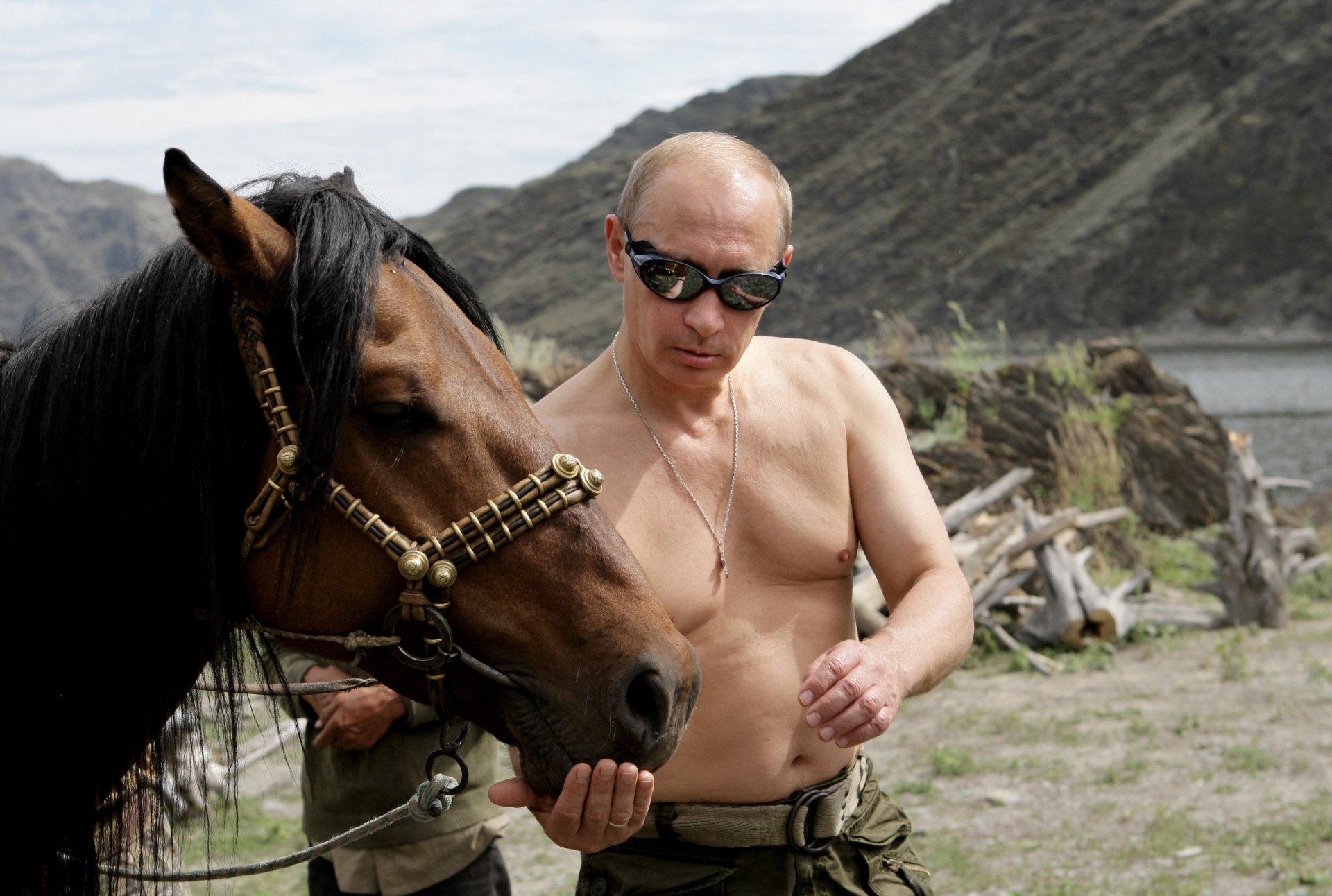
Recent events indicate the emergence of a cult of personality in the Russian Federation—the first of its kind since Stalin. Compared to other regimes, this represents one of the most rapid retreats from democratic principles, as Russia was still considered a quasi-democratic state just a decade ago.
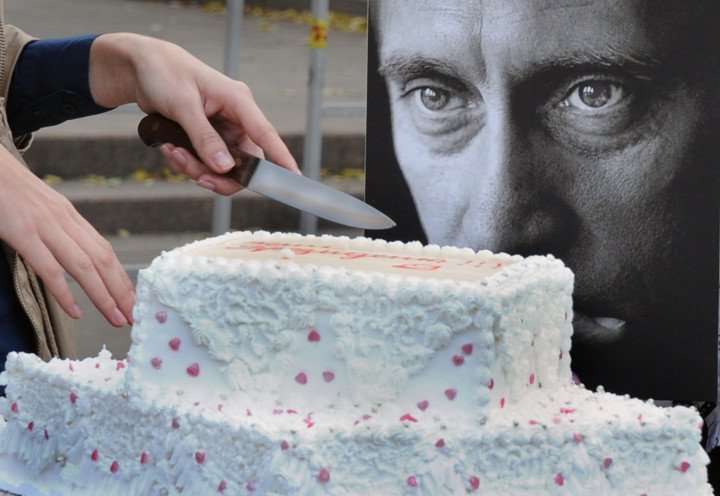
The cult of personality in Russia
In recent years, Russia has experienced the rise of a distinct cult of personality centered around Vladimir Putin. This phenomenon, marked by excessive glorification of the president, was particularly evident on his birthday, October 7th.
High-ranking officials, both domestic and international, offered effusive congratulations, further elevating Putin’s stature among his Moscow supporters and reinforcing the belief that he is the greatest leader alive.
Among the well-wishers was North Korean leader Kim Jong-un, himself at the helm of a cult of personality that portrays him as a god-like figure. Kim addressed Putin as "my closest comrade" and conveyed "sincere and warm congratulations." Other admirers included Belarusian dictator Alexander Lukashenko, Chechen leader Ramzan Kadyrov, and fascist philosopher Alexander Dugin.
Lukashenko’s message to Putin was particularly reverential: “Your deep understanding of Russia's historic mission, personal responsibility for the fate of the people, and the Fatherland have become a reliable guarantee of strengthening its statehood and sovereignty, building up its social and economic potential, and bolstering its international standing.”

The reverence for Putin extends to alarming levels within Russia, with radical elements, including far-right nationalist groups, rallying around him. Disturbingly, even young children in kindergartens are made to kneel before state symbols, underscoring the deep-rooted indoctrination efforts.
Meanwhile, dissent is ruthlessly suppressed, with critics of the president—whether activists or ordinary citizens—often facing imprisonment under broad charges such as “discrediting the armed forces” or “extremism.”
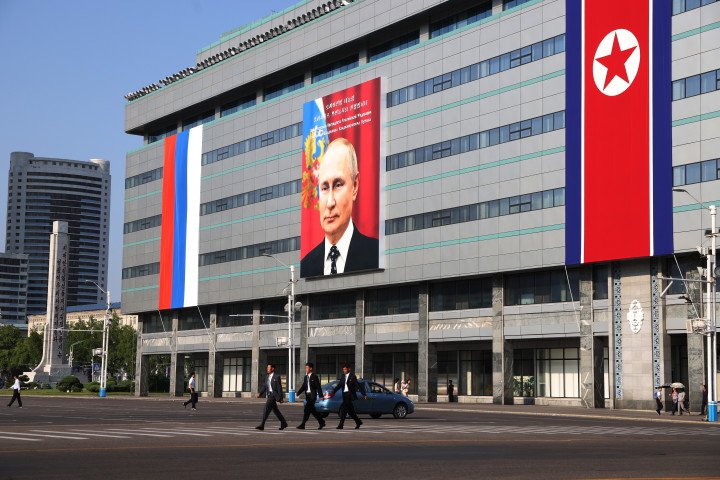
Russia in comparison to other dictatorial regimes
In his book ‘The Hitler Myth’ Historian Ian Kershaw describes a cult of personality as a situation where a leader is "elevated to an almost divine status" through state-controlled propaganda—an apt characterization of Putin’s grip on Russia.
Yet, this phenomenon is not unique to Russia. Similar cults of personality define regimes like Iran and North Korea, where leaders are revered as god-like figures. In Iran, Supreme Leaders are portrayed as spiritual figures beyond reproach, while in North Korea, Kim Jong-un is elevated to near-divine status. In both countries, dissent is punished severely, mirroring Russia’s response to criticism.
While the core elements are similar, there are differences. Iran’s leadership is rooted in religious ideology, and North Korea’s in dynastic rule, while Russia's approach is more pragmatic, relying on Putin’s image as a "strongman" who restored Russia's global influence. This practical emphasis, however, does not make the cult of personality any less dangerous or deeply entrenched.
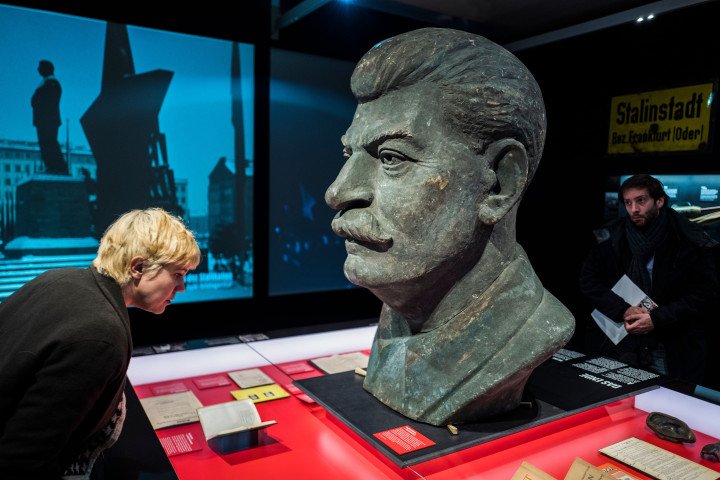
Putin’s stronghold and Russia’s uncertain future
While Putin’s grip on power appears unshakeable, bolstered by the suppression of political opponents and a state-controlled media that shapes public perception, Russia’s future remains uncertain. Unlike monarchies, where succession is secured through hereditary lines, Putin has no clear heir, leaving the question of power transfer wide open.
This lack of a designated successor makes the prospect of political transition a looming uncertainty, not just for Russia but also for an international community that still holds hopes for a more liberal Russia.
The regime’s apparent strength can be misleading. Stalin’s rule seemed similarly unassailable, yet his sudden death in 1953 unleashed the "Khrushchev Thaw," a period of surprising liberalization that disrupted the status quo.
The parallels between the Stalin and Putin era are clear: despite the immense state machinery built around him, a sudden “departure” could create a destabilizing power vacuum. This vacuum could trigger a scramble among various factions within the Kremlin, potentially leading to abrupt and unpredictable shifts in domestic and foreign policy for a country with thousands of nuclear weapons in its arsenal.
The cult of personality surrounding Putin not only parallels other authoritarian systems, such as those in Iran and North Korea but also amplifies the inherent instability of his regime. It is both a source of his power and a potential weakness; it consolidates control while fostering a brittle structure that could shatter without its central figure.
In the end, the very elements that have kept Putin in power—personalized rule, ruthless suppression of dissent, and a narrative of strongman leadership—could ultimately set the stage for significant fallout in Russia’s political landscape in the years to come.

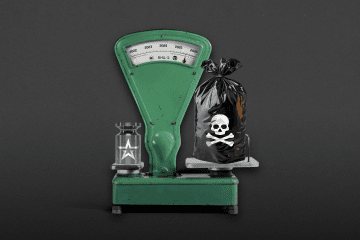
-29a1a43aba23f9bb779a1ac8b98d2121.jpeg)
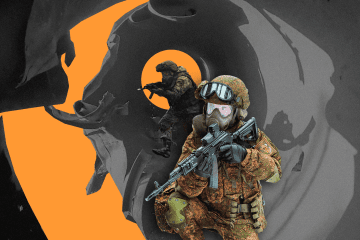
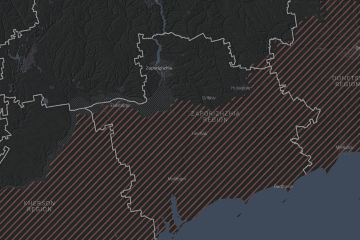
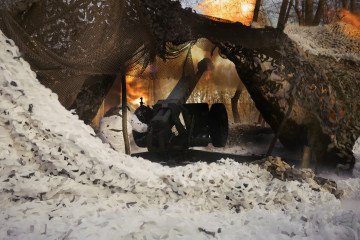
-0666d38c3abb51dc66be9ab82b971e20.jpg)